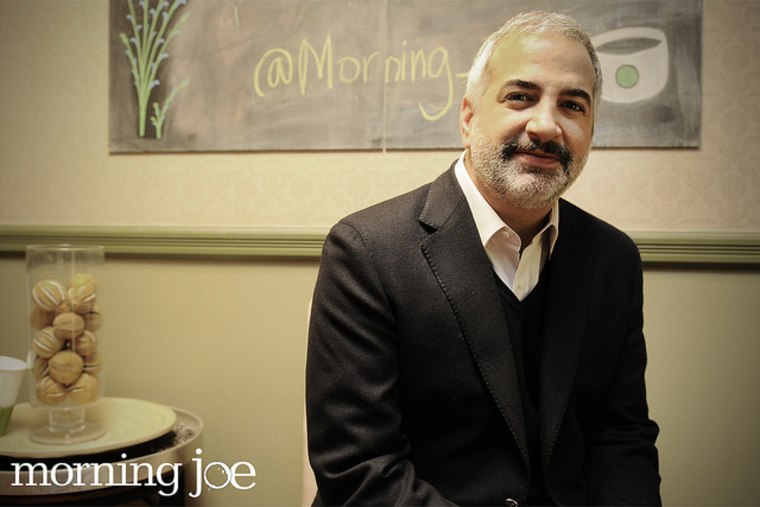New York Times foreign correspondent and two-time Pulitzer Prize winner Anthony Shadid died Thursday in Syria of an apparent asthma attack.
Shadid survived a gunshot wound in the West Bank in 2002 and was captured with other journalists in Libya last year.
In their piece about Shadid's death, the New York Times writes:
The death of Mr. Shadid, an American of Lebanese descent who had a wife and two children, abruptly ended one of the most storied careers in modern American journalism. Fluent in Arabic, with a gifted eye for detail and contextual writing, Mr. Shadid captured dimensions of life in the Middle East that many others failed to see. Those talents won him a Pulitzer Prize for international reporting in 2004 for his coverage of the American invasion of Iraq and the occupation that followed, and a second Pulitzer in 2010, also for his Iraq reporting, both of them for The Washington Post. He also was a finalist in 2007 for his coverage of Lebanon, and has been nominated by The Times for his coverage of the Arab Spring uprisings that have transfixed the Middle East for the past year.
Shadid came on Morning Joe in April to discuss being held hostage in Libya by Gadhafi's soldiers:
I took the above picture of Shadid in our green room during his visit to our studios. It was the only time I met Shadid, and he was enormously friendly and warm, and I won't soon forget listening to him talk about his time in Libya.
And the Washington Post's David Ignatius also joined us today to remember Shadid's life. Here are a few things he had to say:
He was the very best that our profession produces. He was somebody who had a genuine inner passion for the story. He had an understanding of Arab culture; he spoke Arabic beautifully. I can remember we lived together in the same house for a time in Baghdad, and his interest in people...he loved to go to a coffee shop and just sit and talk to people and listen to what they were thinking and seeing the changes in their lives...He was a rare man who just breathed the story in whole and was able to share it with readers. It's a terrible loss for our profession, and it's a reminder of why great journalists like Anthony Shadid make the world better in an important way.
